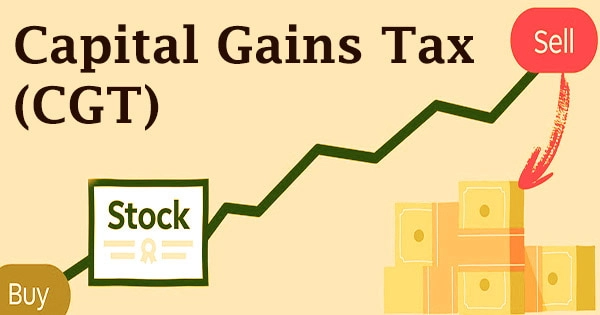The capital gains tax (CGT) is a tax levied on capital gains, or earnings made from the sale of assets. Stocks, bonds, precious metals, real estate, and property are the most frequent sources of capital gains. The capital gains, or profits, are referred to as “realized” when stock shares or other taxable assets are sold. The tax is only applied once the asset has been converted to cash, not while it is still in the possession of an investor.
The duty doesn’t have any significant bearing to unsold speculations or “unrealized capital gains,” so stock offers won’t cause charges until they are sold, regardless of how long the offers are held or the amount they expand in esteem. Not all nations force a capital additions burden and most have various paces of tax collection for people and enterprises. Bahrain, Barbados, Belize, Cayman Islands, Isle of Man, Jamaica, New Zealand, Sri Lanka, Singapore, and other countries do not levy a capital gains tax.
Professional traders and individuals who trade regularly are taxed on such gains as a business income in some countries, such as New Zealand and Singapore. The capital gains tax rate now applies solely to earnings from the sale of assets held for more than a year, referred to as “long-term capital gains” under current federal tax legislation. The rates range from 0% to 15% to 20%, depending on the taxpayer’s tax bracket for that year.
The main time the capital increases expense will be forced is the point at which the individual chooses to sell the offers at a cost higher than their price tag. Transient capital increases charge applies to resources held for a year or less, and are burdened as standard pay. This is a higher tax rate than the capital gains rate for most taxpayers. Capital gain taxes can be charged on investors’ earnings in the majority of nations, according to tax rules.
On valuable products or assets sold at a profit, capital gains tax may be due. If you make enough money from antiques, stocks, precious metals, or second residences, you may be liable to the tax. Individuals must pay at least half of their marginal tax rate on gains obtained through asset disposal in Canada, for example. Similarly, in the United States, capital gains taxes are imposed on both individuals and businesses on their yearly net capital gains.
For most citizens, long-term gains are charged at a lower rate than present moment gains. The lower limit of benefit that is adequately large to have an assessment forced on it is set by the public authority. If the profit falls below this threshold, it is tax-free. A capital gain tax should be imposed on anybody or any business that sells an asset for a profit. Day traders, who make their income by buying and selling assets, are the sole exception.
Informal investors and others exploiting the simplicity and speed of exchanging on the web should know that any benefits they make from purchasing and selling resources held not exactly a year are not simply burdened they are charged at a higher rate. In most situations, profit is the difference between the quantity (or value) of an asset sold and the price paid for it. Day traders, on the other hand, pay taxes on their earnings based on their company revenue rather than capital gains.
It’s also worth noting that capital gains taxes are imposed on many sorts of assets, including stocks, bonds, and real estate. For tax reasons, a profit on an asset sold less than a year after an acquisition is typically considered as if it were earnings or compensation. One thing that firm proprietors need to remember is that resources are not burdened similarly, particularly with regards to speculation wages. The measure of the expense required will rely upon the resource’s holding time frame.
When a firm sells an asset, it can generate two types of profits: long-term capital gains and short-term capital gains. The CGT is a cost of selling that might be higher than transaction expenses or provisions, for example. The tax rates for long haul capital increases are reliable with the pattern to capital additions being charged at lower rates than individual pay, as this table illustrates. The writing gives data that boundaries to exchanging contrarily influence the financial backers’ eagerness to exchange, which thus can change resources costs.
When the proceeds from the sale of an asset exceed the cost of the item, a capital gain is realized. Capital gains tax and its changes are reacted to by businesses, particularly those with tax-sensitive clients. CGT and its modifications have an impact on stock market trading and selling. A capital gains tax is that assessment forced on the benefits produced using such deals. Notwithstanding, not at all like for certain different speculations, capital misfortunes from the offer of individual property, like a house, are not deductible from gains.
Investors must be prepared to respond to these developments in a rational manner, taking into consideration their clients’ cumulative capital gains. There are, however, a few methods that may be used to reduce the amount of capital gains tax that must be paid. They include keeping assets for longer before selling them, selling assets when their income is low, and offsetting profits with capital losses. Small capital gains, on the other hand, excite the market and encourage investors to sell.
Information Sources:
















